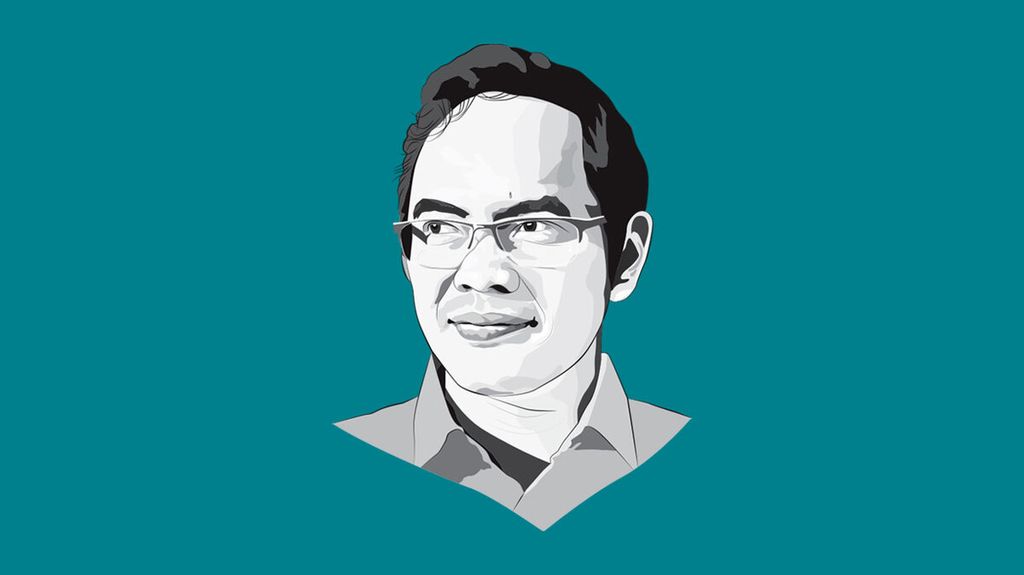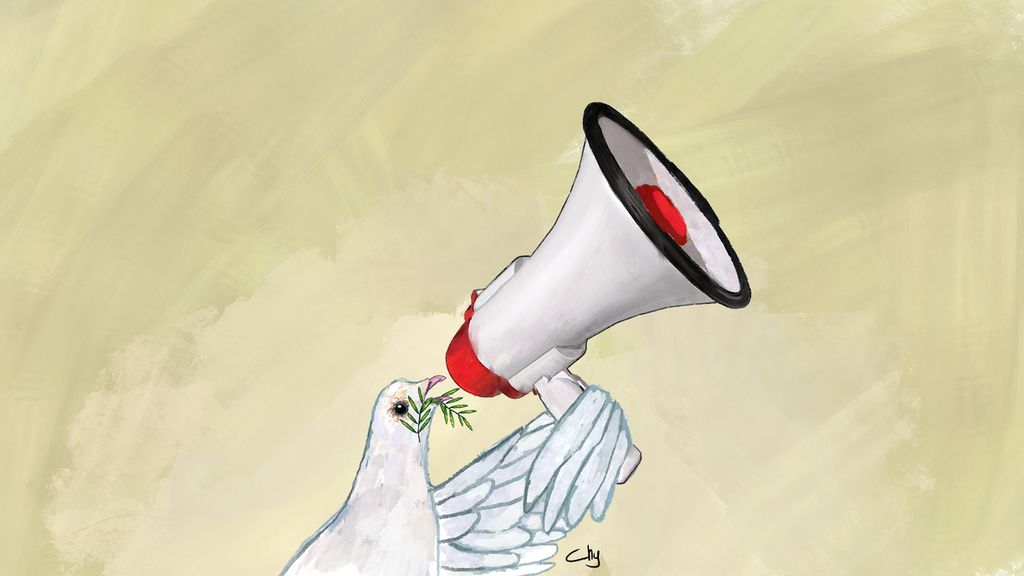CULTURAL ANALYSIS
Muhammadiyah's 48th Muktamar (congress) ins different from a leadership-selection process. The largest modernist mass organization in Indonesia implements the democratic process in selecting its leaders in a calm & cool.

Ahmad Najib Burhani
Our democratic culture, especially in general elections, is sometimes colored by intrigues, polarization and fights. Precisely when conditions are calm, without conflict and running smoothly, it is seen as something abnormal. There is even a tendency to suspect the system, when electing leaders not accompanied by acrimony, as being engineered or undemocratic.
In general elections, including the election for leaders of ormas (community organizations), money politics is something that usually happens. Suitcases filled with cash, the circulation of money from the campaign team to a number of delegates present, the action of buying hotel rooms by certain candidates, the promise and lure of giving tickets and accommodation to voters to direct their votes to certain candidates are the stories that are often found from congress, including those conducted by Islamic organizations.
Not to mention the war of placards, banners, posters or flyers, banners and billboards in the congress arena. Sometimes, as soon as we enter the city where the congress is being held, we can already sense the air war via big billboards. The city seems to be surrounded by photos of the faces of those who are running for leadership of certain mass organizations. As soon as election time comes, various dramas and commotion appear, sometimes to the point of blood with fist fights, throwing chairs and various other disturbances.
Also read:
> Muhammadiyah for the Advancement of Indonesia
What happened at Muhammadiyah's 48th Muktamar (congress) in Surakarta, Central Java, on 18-20 November 2022, is different from a leadership-selection process. The largest modernist mass organization in Indonesia implements the democratic process in selecting its leaders in a calm, cool and peaceful manner. There is no campaign for each candidate, because the election basis is the track record or achievements accomplished by each candidate in the previous administration period, not just sweet promises before the election. Candidates who look too aggressive sometimes lose support. Democracy is carried out based on civic culture, namely leaders and those who are led have an attitude of mutual trust and respect.
The election, which was held at the Surakarta Muhammadiyah University (UMS) Edutorium on Saturday (19/11/2022), also took place very quickly because it used an e-voting system. Of the 2,713 participants who had voting rights, 2,519 people used them. They were 14 members of Muhammadiyah's central leadership, 174 delegates from Muhammadiyah regional leadership, 2,504 delegates from Muhammadiyah regional leadership and 21 delegates from the Muhammadiyah autonomous organization. The whole thing took less than four hours. Exactly at 11:43 p.m., the entire selection process had been completed.
With the approval of the Muhammadiyah Central Executive Board, the announcement of the election results was broadcast on a large videotron in the auditorium at exactly 12:00 a.m. At least 13 new Muhammadiyah leaders were elected to lead this organization for the 2022-2027 period. They were Haedar Nashir, Abdul Mu'ti, Anwar Abbas, Busyro Muqoddas, Hilman Latief, Muhadjir Effendy, Syamsul Anwar, Agung Danarto, Saad Ibrahim, Syafiq A Mughni, Dadang Kahmad, Ahmad Dahlan Rais and Irwan Akib. These thirteen people then chose Haedar Nashir and Abdul Mu'ti as general chairman and general secretary of the Muhammadiyah Central Executive Board.

The selection process for prospective leaders was carried out long before the congress, starting with the distribution of forms to regions in Indonesia. Those who met the requirements could apply to become candidates for leadership by filling out the forms. In the early stages, 216 candidates were collected. After going through administrative selection, that number dropped to 126 candidates.
Of these 126 names, after going through various processes, 92 names were then brought to the tanwir meeting, which is the second-highest leadership meeting forum after the congress. At the tanwir, which was held right before the congress, a number of delegates who were present chose 39 names from the 92 available names. In the congress forum, 13 names were chosen out of 39 names. Those are the stages of selecting leaders in Muhammadiyah. Someone cannot suddenly run for office just because he has money or a name.
The e-voting system used in the 48th Congress in a simple form was built at the 47th Congress in Makassar, South Sulawesi, in 2015. At that time, voting technology was only used to calculate election results, while elections were still held manually. This time the system had been completed and the selection process up to the calculation was carried out with one technology system. All congress participants who had the right to vote got tokens with QR code.
Also read:
At the time of election, they would take turns entering the voting booth, which totaled more than 20 booths in the meeting room. They would scan the QR code in the token and automatically the names of 39 Muhammadiyah leadership candidates would appear on the monitor screen in the voting booth. They had to choose 13 names from the 39 names; not more, not less. Once they had voted, they needed to press the submit button to complete the selection. As soon as the button was pressed, the selection results would be printed and at the same time indicated that the selection process had been successful.
What does e-voting mean for Muhammadiyah members? Digital literacy and digital migration and adaptation. This system does not only make the election process fast and effective, but also builds behavior and digital awareness among Muhammadiyah members. Indeed, the cost is still high, but this is the cost that must be paid for transferring technology and building digital awareness in society.
This system does not only make the election process fast and effective, but also builds behavior and digital awareness among Muhammadiyah members.
What was perhaps not visible in the democracy at Muhammadiyah this time was the various "ideological" colors that have shaped the community association so far. Everything looked uniform; it was not visible that they had salafi, liberal, conservative, traditional, nationalist or other ideological tendencies. The colors of Yogyakarta, Central Java, Jakarta or East Java, which were usually jockeying for influence in elections, were also silent. This was perhaps what made some see the leadership election at the congress this time as flat, less exciting and less enthusiastic.
Prior to the congress, Din Syamsuddin, chairman of Muhammadiyah 2005-2015, discussed "fresh blood" to be included in the Central Leadership Board of Muhammadiyah. However, the issue is only a glimpse of discourse that does not really have an impact. Likewise in responding to the 2024 Election, which is often asked about by journalists. The answer is almost unanimous in tone that Muhammadiyah is "critical loyal" to the government. Perhaps this is another consequence of a peaceful democracy.
AHMAD NAJIB BURHANI, Research professor at the National Research and Innovation Agency (BRIN)
This article was translated by Hyginus Hardoyo.
https://www.kompas.id/baca/english/2022/12/11/the-peaceful-democracy

 orcid.org/0000-0002-0333-8344
orcid.org/0000-0002-0333-8344
No comments:
Post a Comment